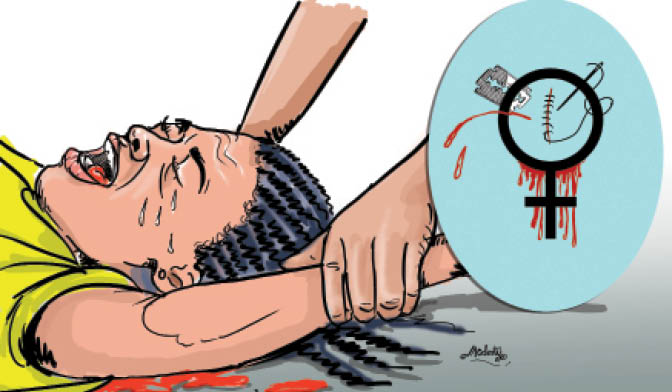WHO Calls for Ban on Health Workers Performing Female Genital Mutilation
The World Health Organization (WHO) on Monday called for a global code of conduct to prohibit medical workers from performing female genital mutilation (FGM).

In newly released guidelines aimed at halting FGM, the UN health agency emphasized the crucial role health professionals play not only in detecting the practice and supporting survivors but also in leading efforts to eliminate it.
Alarmingly, WHO pointed out that in many regions, health workers are sometimes the ones carrying out FGM, rather than local community practitioners.
“Female genital mutilation is a severe violation of girls’ rights and critically endangers their health,” said Pascale Allotey, WHO’s director of sexual and reproductive health and research.
“Health workers must be agents for change rather than perpetrators of this harmful practice. They must also provide high-quality medical care for those suffering its effects,” she added.
FGM involves the partial or total removal of female external genitalia or injury to female genital organs. It can result in serious health consequences, including infections, heavy bleeding, infertility, and complications during childbirth.
According to UN Women, an estimated 230 million girls and women alive today have undergone FGM, often before reaching puberty. Despite efforts to eliminate the procedure, it remains prevalent in about 30 countries, with around four million girls at risk each year.
WHO noted that since 1990, the likelihood of a girl undergoing FGM has dropped threefold. However, the medicalization of FGM—where healthcare professionals perform the procedure—risks legitimizing it and undermining decades of progress.
The new guidelines urge the establishment of strict professional codes of conduct that explicitly forbid health workers from performing FGM. They also highlight the importance of training and engaging health workers in prevention efforts.
“Research shows that health workers can be influential opinion leaders in changing attitudes on FGM,” said Christina Pallitto, WHO scientist and lead developer of the new guidelines. “Engaging doctors, nurses, and midwives must be central to FGM prevention and response.”
Beyond prevention, the guidelines also offer clinical recommendations to ensure that FGM survivors receive compassionate, high-quality medical care throughout their lives—ranging from mental health support to obstetric risk management and, where appropriate, surgical repair.
COMMENTS